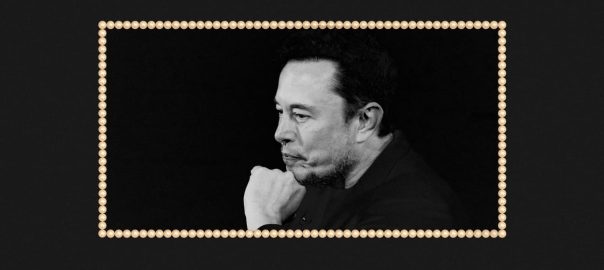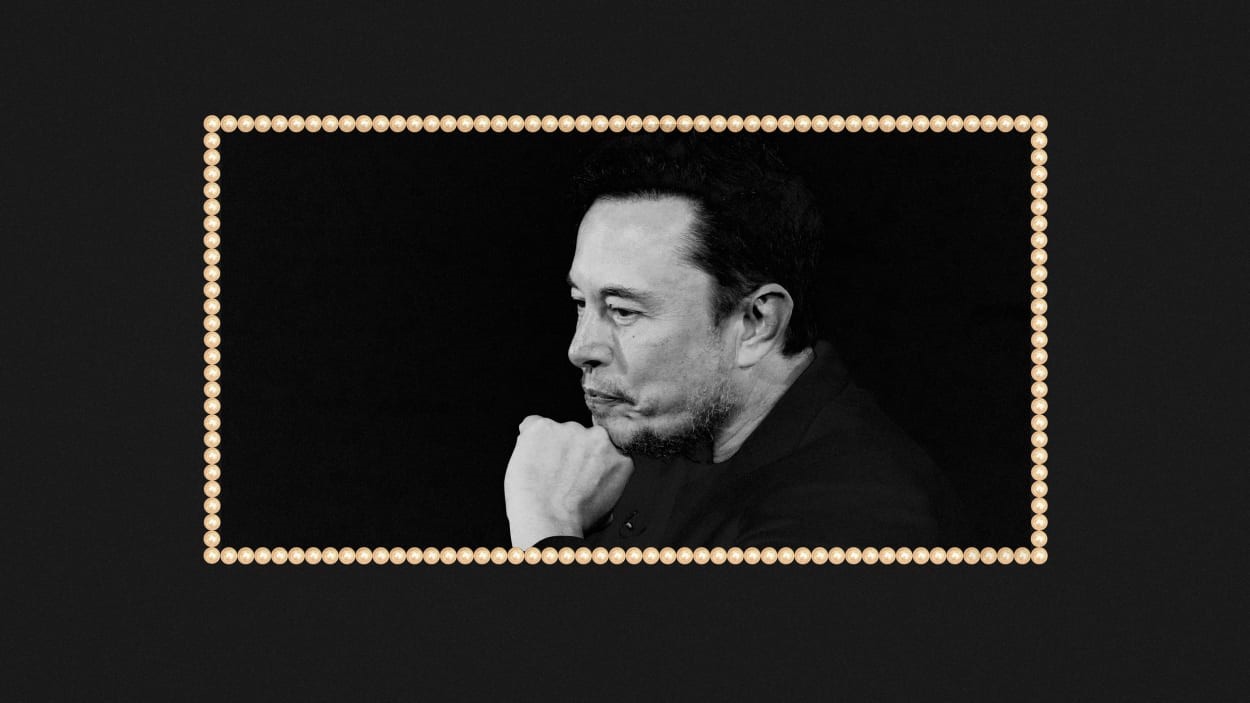Elon Musk seems to be everywhere, so why not on the big screen, too? That’s where audiences will find him, or at least a version of him, now that arthouse studio and critical hit maker A24 has acquired the film rights to adapt Walter Isaacson’s Elon Musk biography, to be directed by auteur filmmaker Darren Aronofsky.
But critical and financially successful biopics are a rarity in Hollywood, and the Musk biopic poses arguably an even bigger risk. Not only is the tech billionaire still alive, with the ending of his real-life story yet to be told (making crafting a cinematic narrative more difficult), but Musk himself is a highly divisive and increasingly alienating character, which could repel audiences. That’s especially true after Musk endorsed an antisemitic post on his X platform earlier this week.
After the endorsement caused widespread condemnation, Apple, which Musk has said was one of his social network’s biggest advertisers, paused its advertising on the site. IBM has as well after its ads ran alongside antisemitic posts on the platform. Given this, one wonders if A24 and Aronofsky should move ahead with the biopic at all. If they do, here are some things they should keep in mind based on other tech CEO biopics.
1. The actor doesn’t need to look like Elon Musk
Within four years of Apple CEO Steve Jobs’ passing in 2011, two Hollywood films came out about his life. The first was Jobs, the 2013 film directed by Joshua Michael Stern, starring Ashton Kutcher. The second was Steve Jobs, the 2015 film directed by Danny Boyle, starring Michael Fassbender.
When the casting for both films was announced, many thought Kutcher was an excellent choice to portray the Apple CEO because Kutcher had an uncanny resemblance to a young Steve Jobs. At the same time, people were disappointed that Fassbender had been cast as Jobs in the 2015 film because the two men didn’t have much of a physical resemblance.
But when it came to portraying the tech icon, it was Fassbender who hit it out of the park. While he didn’t look like Jobs, he captured Jobs’ persona to a degree that Kutcher did not. Within five minutes of watching Steve Jobs, you forget that it’s Fassbender you’re watching and believe it’s the real man.
When it comes to portraying Musk, the actor’s ability to capture the controversial billionaire’s persona is more important than the visual likeness.
2. Origin stories are rarely interesting. Don’t show us Musk’s entire life
Alfred Hitchcock said that movies are like life, but with all the boring parts cut out. Even if Musk is an attention-seeking, world-famous billionaire, we don’t need to see his entire life story portrayed on the screen.
This is another reason the 2013 Jobs film wasn’t as good as the 2015 Steve Jobs film. Jobs went too far into the past—including the Apple CEO’s college years. Steve Jobs cut to the chase, beginning with one of the most pivotal moments in Jobs’ life: the unveiling of the Apple Macintosh. The film didn’t show him founding Apple. There was no narrative need to.
So, when it comes to making a Musk movie, skip over the college years, the PayPal years, and even the Tesla years. The most drama-fueled parts of Musk’s public life have been the more recent ones: his burgeoning efforts to take us to Mars and his scorched earth policies after taking over Twitter. There’s been as much behind-the-scenes drama, if not more, at Twitter in the year since Musk took over as there was during the early years of Facebook, which provided compelling theatrics for what may be one of the best biopics of recent memory: The Social Network.
3. Hiring Aaron Sorkin to write the screenplay never hurts
When movies are based on books, there’s a reason people usually say “The book was better.” Film adaptations don’t typically work well if they adhere too rigidly to a book’s structure, prose, or style. Aronofsky’s Musk film will be based on Walter Isaacson’s Elon Musk biography, and though Isaacson is one of the best biographers alive, he’s not a screenwriter, and he likely didn’t write the book with the screen in mind.
That’s why it wouldn’t hurt to bring Aaron Sorkin on board to write the screenplay. Sorkin has adapted an Isaacson biography before—Isaacson’s 2011 book, Steve Jobs, which became the 2015 film of the same name. The book and the film have very little in common when it comes to tone or structure, but Sorkin’s adaptation did the book justice by capturing the essence of Jobs that Isaacson captured so well in his biography.
Sorkin also wrote the screenplay for the 2010 film The Social Network, which was based on the 2009 book The Accidental Billionaires by Ben Mezrich. Both the film and the book detailed the founding of Facebook and the drama behind it. The Social Network is widely considered one of the best films of the 21st century, and certainly the best biopic. It went on to win multiple Academy Awards and Golden Globes, and a large part of that is because the script was entrusted to a screenwriter who knew how to translate a well-written biography into a well-paced biopic by capturing the subject’s essence instead of trying to bring every chapter to the big screen.
4. Let Aronofsky be Aronofsky
Aronofsky is one of the most interesting directors working in mainstream Hollywood, with his films, like those of David Fincher, Christopher Nolan, or Sofia Coppola, identifiable simply by their tone, subject, or style. Aronofsky fans know they’re usually in for a fucking weird movie that is dark, psychologically complex, and often surreal. There’s the Noah‘s creation sequence, the Black Swan feathers scene, and pretty much any scene of The Fountain, just to name a few.
Musk is a wild and contentious character, and even his detractors can be dramatic, so here’s hoping A24 lets us see all those personality traits portrayed in a truly Aronofsky-ish way, whether that involves peering into a Musk fever dream of himself defeating Jesse Eisenberg’s Mark Zuckerberg in a cage match, or some haunting visual of Musk straddling a SpaceX rocket to Mars a la Kong in Dr. Strangelove, as those of us left on a dying earth tear into each other on an unregulated X.
Aronofsky is also great at peering into the dark psychology of his characters. Now that we’ve seen just how reprehensible Elon Musks’s inner thoughts are, it seems there’s no better director than Aronofsky to bring the X owner’s dark persona to life on the silver screen.
(11)
Report Post







